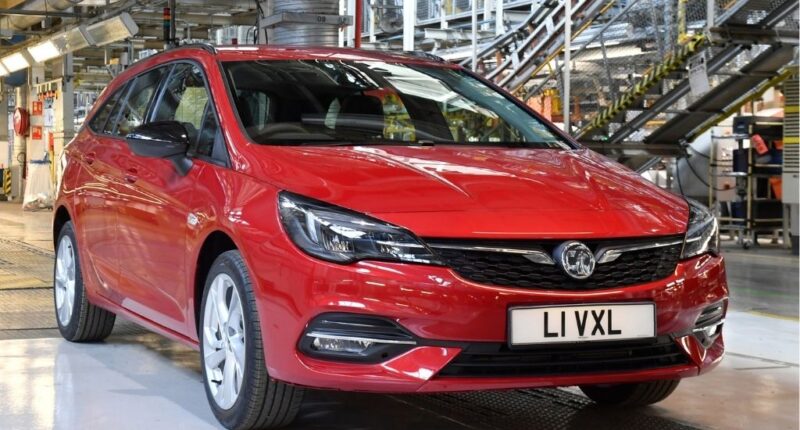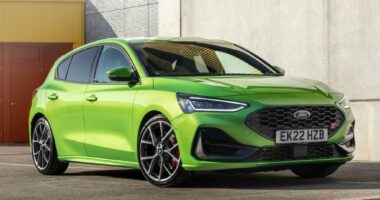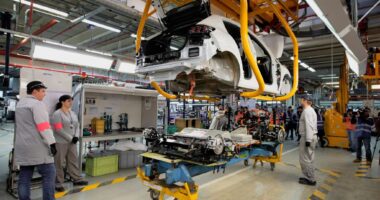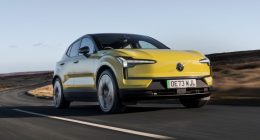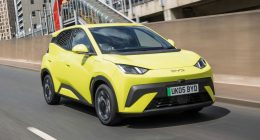Work is underway to repurpose Vauxhall’s Ellesmere Port plant as part of a move that means it will build only battery-powered models from the start of next year.
The £100m investment comes in the sixtieth anniversary year of the British manufacturing facility, which ceased production of combustion-powered cars on April 6.
The last of these to roll off the assembly line was a ‘SRi Nav’ spec Astra Sport Tourer finished in ‘Hot Red’ paint. The occasion was celebrated with a gathering of the plant’s workforce as well as former employees outside the main building.
Once the transformation of the facility has been completed, it will become the first Stellantis-owned facility to specialise in electric vehicles, namely the Vauxhall/Opel Combo-e and its sister vans, the Citroen e-Berlingo and Peugeot e-Partner.
The trio of light commercial vehicles – and their passenger car variants – are all powered by the same 100kW motor that draws its energy from a 50kWh lithium-ion battery. With a WLTP range of 174-miles, Stellantis says they can be charged at up to 100kW and take just 30 minutes to charge from zero to 80%.
Paul Willcox, the Managing Director of Vauxhall and Senior Vice-President at Stellantis, said: “Over the last 60 years, Ellesmere Port has become one of the great British car plants, producing some of the most popular cars on the roads across generations.
“With one era closing, we’re now looking forward to an all-new electric era at Ellesmere, with the site becoming the first Stellantis plant to produce solely electric vehicles. Vauxhall is fast moving towards an electric future and I’m pleased to see the next-generation of Vauxhall electric vehicles made in Britain.”
Since first opening its doors in 1962, workers at Ellesmere Port have built many iconic Vauxhall nameplates, including the Viva, the Chevette and successive generations of the Astra hatch. In total, more than 5.2 million vehicles have been assembled there.
From 2028, Vauxhall will sell only zero emission vehicles and points out that the changes at Ellesmere Port “will ensure the UK remains at the forefront of electric vehicle manufacturing”.
The plant upgrade also forms part of Stellantis’ commitment to become a carbon neutral group – globally – by 2038 and to halve its carbon footprint by 2030.
